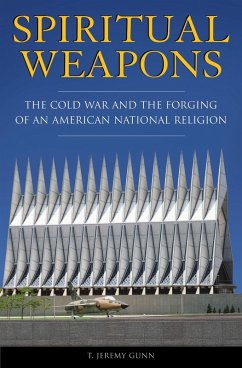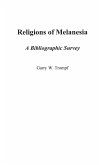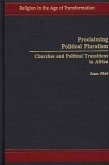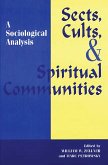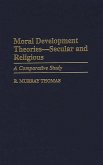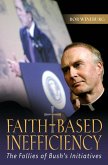While some may argue that religion has & continues to influence U.S. foreign policy, others would argue that foreign policy has significantly influenced an American National Religion after 1947. Here, Gunn shows that in the wake of World War II, Americans quickly returned to their traditional peacetime suspicion of the military & engaged in disputes over capitalism. When Churchill delivered his Iron Curtain speech in 1946, the American press & American politicians panned it. Only one year later, the United States began to identify itself in reaction to the Soviet Union & its growing power and influence on the world stage. If the USSR promoted governmental affirmations of atheism, so the United States would respond with its public declarations of God. This was the origin of under God in the Pledge of Allegiance (1954), In God We Trust on paper money (1955), and other public declarations about God and religion. Tracing the development of this influence on American religion, Gunn reveals a new way of looking at how public faith has been transformed by world events and the U.S.'s reaction to them. Covering topics such as American national religion, government sponsorship of God and prayer, military activities, the Vietnam war, and current views on religion and foreign policy, the author underscores the ongoing influence foreign affairs and foreign policy have on religion and how it is practiced, both privately and publicly, in the United States. The post-WWII backlash to events occurring around the world, he contends, continues to shape and inform our notions of God and country, public faith, and the U.S.'s position in the global village. Taking the reader through this history to the present day, the author sheds new light on this important topic.
Bitte wählen Sie Ihr Anliegen aus.
Rechnungen
Retourenschein anfordern
Bestellstatus
Storno

